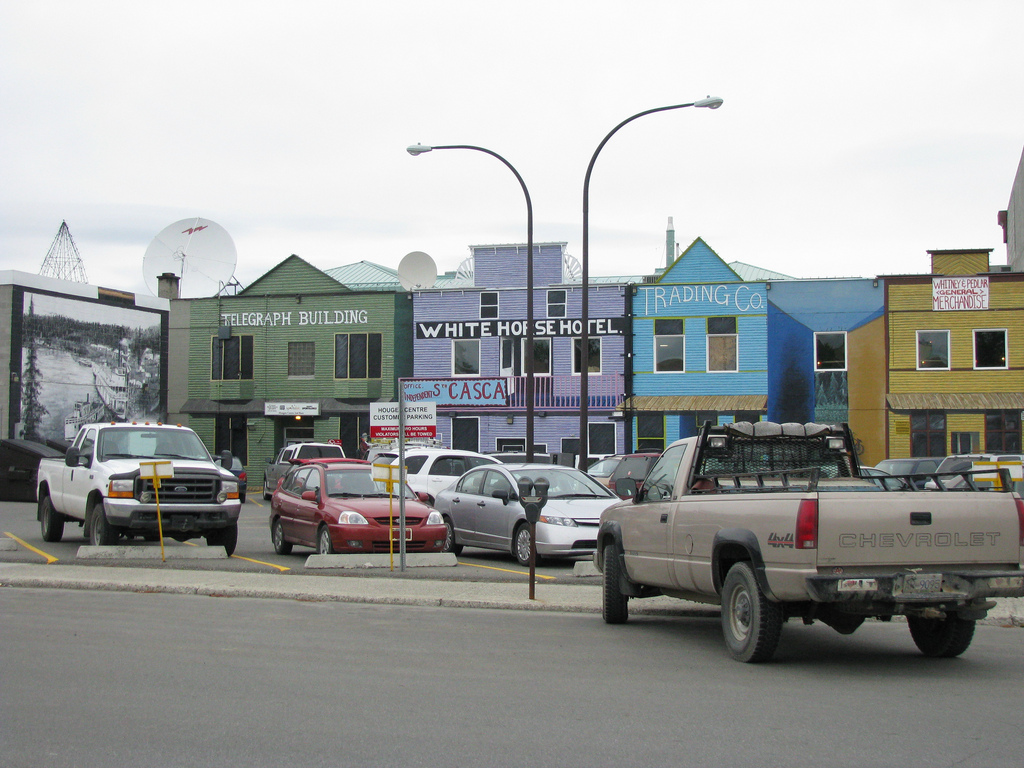Assessing use of geothermal greenhouses in the Yukon, Canada

A student group looked at the feasibility of geothermal energy projects with greenhouse agriculture in the Yukon, Canada.
As part of the 2021 REDEVELOP Geothermal Challenge, Canadian geothermal technology firm Eavor Technologies’ Jeanine Vany mentored students to assess geothermal greenhouses as a way to address food insecurity in the Yukon using clean energy. The Yukon is the smallest and most westernmost of Canada’s three territories in the North of Canada bordering British Columbia to the South and the U.S. state of Alaska to the west. With a cold climate, geothermal has been looked at over the years as a potential for heat and power. We reported on the possibility of using greenhouses heated by geothermal, as well as efforts on geothermal exploration before.
The study on geothermal greenhouses showed that geothermal energy presents strong opportunities for optimization. It considered the use of ground-source heat pumps (GSHPs) and showed that vegetables grown in these local geothermal greenhouses were effective in reducing carbon emissions from produce shipping. It further looked into using heat from a geothermal power plant.
Lonn Brown, one of the students who worked on the Geothermal Challenge with REDEVELOP says, “[Geothermal] is really interesting, I think that a lot of the difficulties that geothermal faces is due to the fact that people don’t really know much about it. If you say geothermal to most people, you’re met with “Oh I know about hot springs, how is that an alternative energy source?” And there’s so much energy down there. [People] don’t really have an understanding of how geothermal translates into the energy that our society needs.”
“Challenges associated with affordable, nutritious food security for Indigenous communities in Northern Canada have been documented for decades[1]. In cold and remote climates, the limiting factor for economical food production is adequate energy to maintain the temperature, light, and humidity needed for plant growth. Geothermal energy extracted from internal planetary heat is a low-carbon form of energy-on-demand[2]. This work explored the feasibility of greenhouse agriculture supported by geothermal energy to improve food security in Yukon.”, so the abstract of the student group.
REDEVELOP is a Collaborative Research And Training Experience (CREATE) initiative. They are training Canada’s future leaders in low-carbon energy because Canada’s energy sector is changing. They believe unconventional resources are key to Canada’s transition to a low-carbon energy future, environmental sustainability and socio-economic stability.
Jeanine Vany believes “students need access to industry perspectives to enhance the practicality of the projects they are working on in academic settings.” REDEVELOP also “gives students additional contacts to leverage upon graduation and that should help them network toward a new job or internship upon graduation. I personally have been fortunate enough to transition into geothermal without a career gap but I know others are turning back toward school to prepare for the future potentially outside of oil and gas rather than leave the energy business. This is wonderful news because we are going to need the talent from Western Canada’s oil and gas sector to meet the challenges of the energy transition.”
For an overview on the study and details, see the abstract of the student group here.
In 2020, Eavor Technologies signed a partnership agreement on a potential geothermal project in the Yukon, as we reported.
For the full article see link below.
Source: Eavor